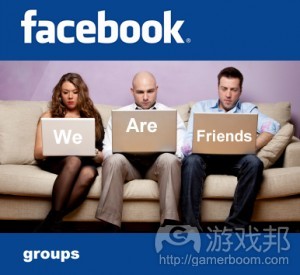社交游戏加剧Facebook中的伪友情问题
作者:Colin Sidoti
社交游戏能够为Facebook带来盈利,并且提升其用户访问量。乍看之下,社交游戏对这个身价500亿美元的公司只会有利无害,但深入探究后就会发现一个影响社交网络真诚性的问题。
已经有文件指出问题的根源所在——亲密问题。6个月前,谷歌UX资深工程师Paul Adams用多达224页的幻灯片清晰地阐述这个问题。不久之后,Facebook尝试利用Groups功能更新来解决这个问题,但似乎并不奏效。Facebook随后从谷歌挖走了Paul Adams,可能正让他致力于开发Groups修正版本。500 startups创始人Dave McClure也在给“Next Big Social Network”的公开信中细致阐述了这个问题。
在社交游戏出现之前,这个问题就已然存在,但游戏让Facebook更难修正这个问题。Zynga之类的游戏开发商在游戏中添加了某些功能,使得游戏的趣味性随好友数量递增,以此来鼓励用户邀请现实生活中的好友加入游戏。尽管这种做法或许对大部分用户都能奏效,但它也含有意料之外的副作用,即互不相识的人们之间的伪友情。这个问题在这些游戏的推广页面上显得尤为突出,上面杂乱无章地遍布“加我吧”之类的好友请求。
这种添加伪好友的势头势必对Facebook产生不良后果,这也是MySpace的核心问题之一。而且,Facebook是否有意愿将维护好友的真诚性放在第一位仍未可知。社交游戏能够为该网站带来大笔盈利而且这已成为Facebook的长期发展规划之一,该社交网络会维持其目前的状态和内容的想法同样也是合理的。
解决方案之一是向社交游戏开发商施压,让他们减少导致这些问题的功能,这完全符合扎克伯格的性格。数年之前,他从主概况页面上移除了一些应用,这损害了许多应用开发商的盈利。我认为这是Facebook做过的最大的改革,但我还不确定他们是否会对社交游戏采取此等措施。与早期的概况页面应用不同的是,Facebook能够从这些游戏中获得盈利。要求游戏开发商移除帮助游戏进行病毒性传播的功能对双方来说都没有好处。
社交游戏会伤害到Facebook的社交图谱吗?我并不确定,但这一图谱确实面临挑战,而且Facebook确实正在寻找合适的解决方案。将来Facebook肯定会占据一席之地,但这个漏洞产生的空间却足以让某个更完善的新社交网络趁虚而入。
游戏邦注:本文发稿于2011年1月17日,所涉时间、事件和数据均以此为准。(本文为游戏邦/gamerboom.com编译,如需转载请联系:游戏邦)
Did social games kill Facebook’s social graph?
Colin Sidoti
Social games have been instrumental in driving revenue to Facebook and extending the length of its user’s visits. Zynga, the most prominent social game creator, has even negotiated a special, five-year strategic partnership with Facebook. At first glance it seems that social games can only provide benefits to the $50 billlion company, but a deeper look reveals a problem that diminishes the integrity of the social network.
The root of the problem is well documented: Facebook has intimacy problems. Paul Adams, a long-time Google UX engineer, clearly defined the problems in a 224 page slideshow 6 months ago. Soon after, Facebook tried fixing their problems with an update to the Groups functionality, but it doesn’t seem to have worked. Facebook followed up by stealing Paul Adams from Google, and presumably another revision of Groups is in the works. The problem is also detailed by Dave McClure, founder of 500 Startups, in his Open Letter to the Next Big Social Network.
This problem has been around since before social games, but the games have made it a significantly harder problem for Facebook to fix. As a way to encourage users to invite their real friends to play games, game makers like Zynga have added features that make their games more fun with more friends playing. While this probably works well for a good amount of users, it has also had the unexpected side effect of forging relationships between people that do not know each other. The prominence of the issue is made exceptionally clear on these games’ walls, which are littered with open requests to “Add Me” as a “friend” on the social network.
This momentum towards adding fake friends is certainly not good for Facebook, and is reminiscent of one of MySpace’s core problems. At this point, any attempt to reverse the trend will result in a group for “People I Don’t Know” within the profile of many users. Moreover, it is unclear if Facebook has a desire to preserve the integrity of friendships in the first place. With social games driving a significant amount of revenue and already being deeply integrated into Facebook’s long-term roadmap, it is reasonable that the social network will remain content with their current standing.
One option is to put pressure on social game makers to eliminate the features that cause these problems, which wouldn’t be completely out of Zuckerberg’s character. Years ago, he removed applications from main profile pages, which destroyed the revenue stream of many app creators. One of those app creators, Slide, shared Peter Thiel’s Founder’s Fund as an investor. I consider this one of the greatest moves Facebook has ever made, but I’m far from convinced they would give the same treatment to social games. Unlike the early profile page applications, Facebook is profiting off of these games. Asking the game makers to remove features that help the games go viral doesn’t seem to benefit anyone financially.
Did social games kill Facebook’s social graph? I don’t know for sure, but the graph is definitely struggling, and Facebook is definitely struggling to find a solution. Facebook has a place in the future, but it’s possible this hole has created room for a new, more intimate social network to swoop in without Facebook stepping on their toes. What do you think? (Source: colinsidoti.com)
上一篇:分析3大社交平台的游戏机制








































 闽公网安备35020302001549号
闽公网安备35020302001549号